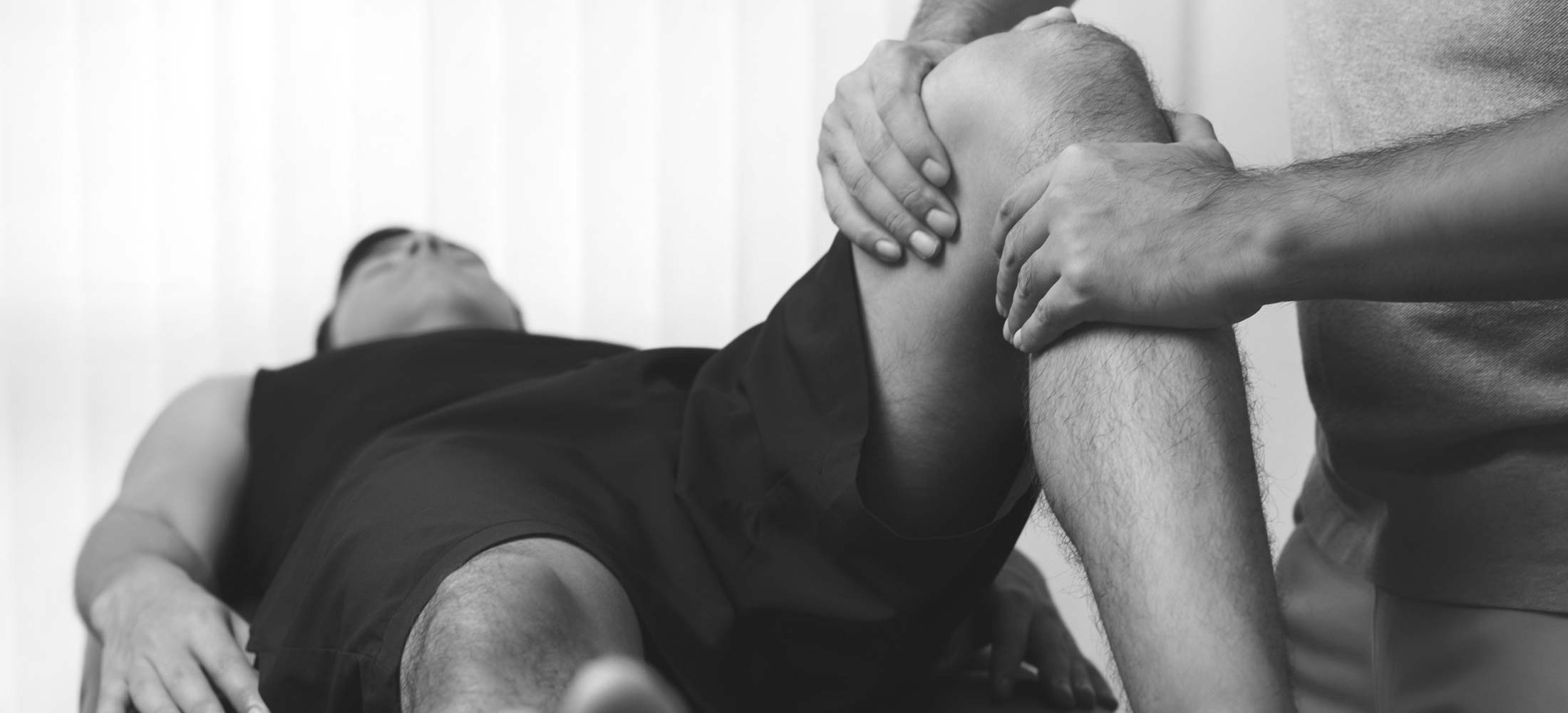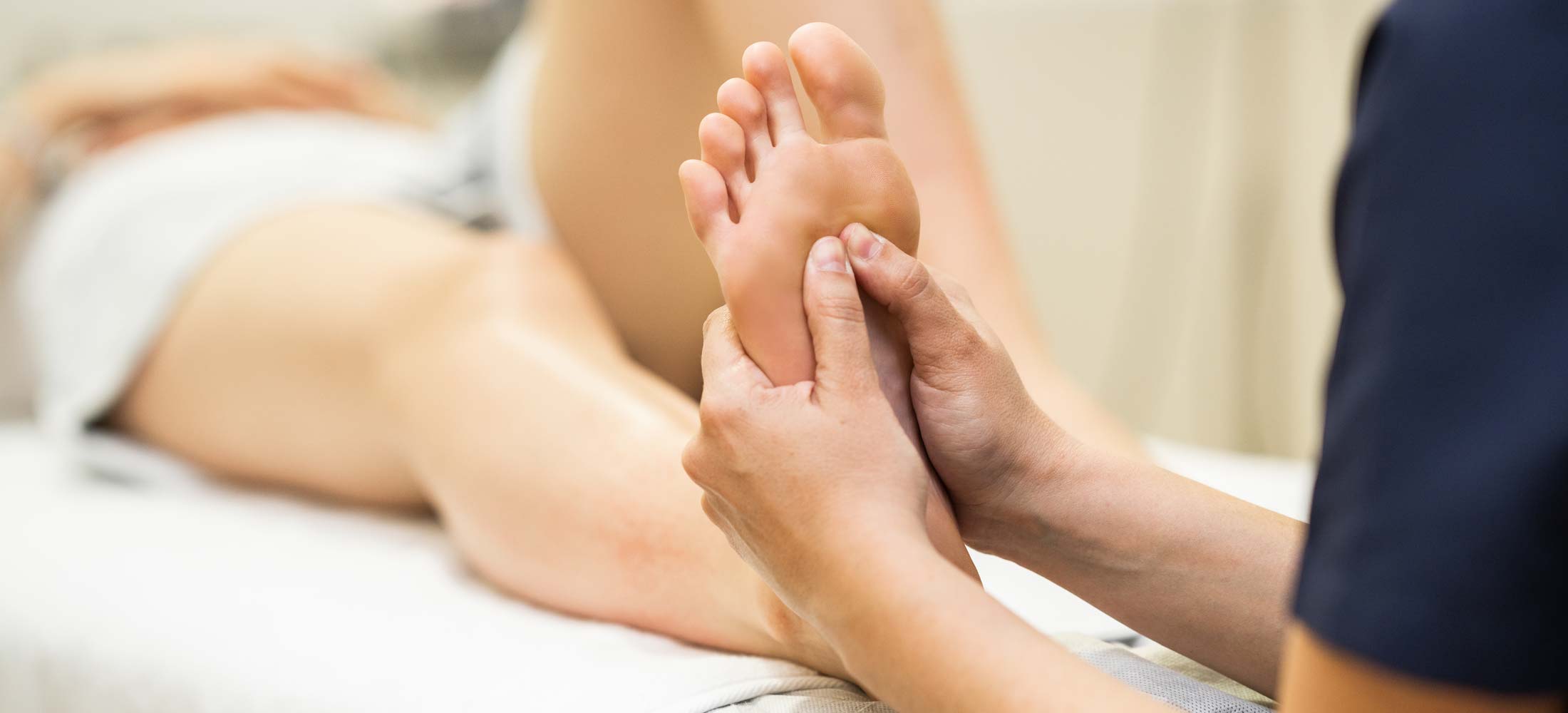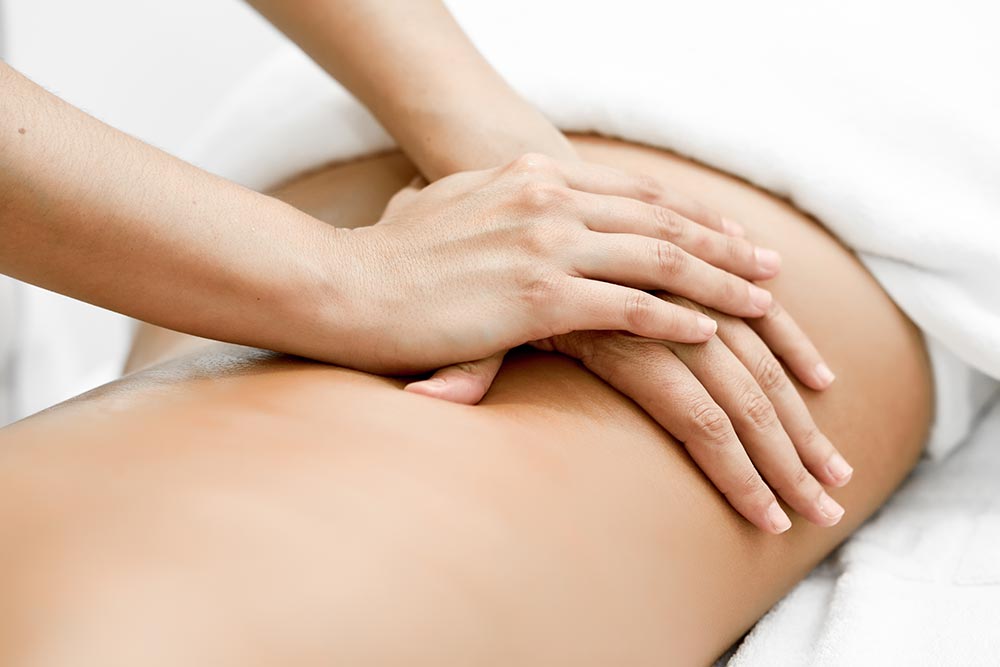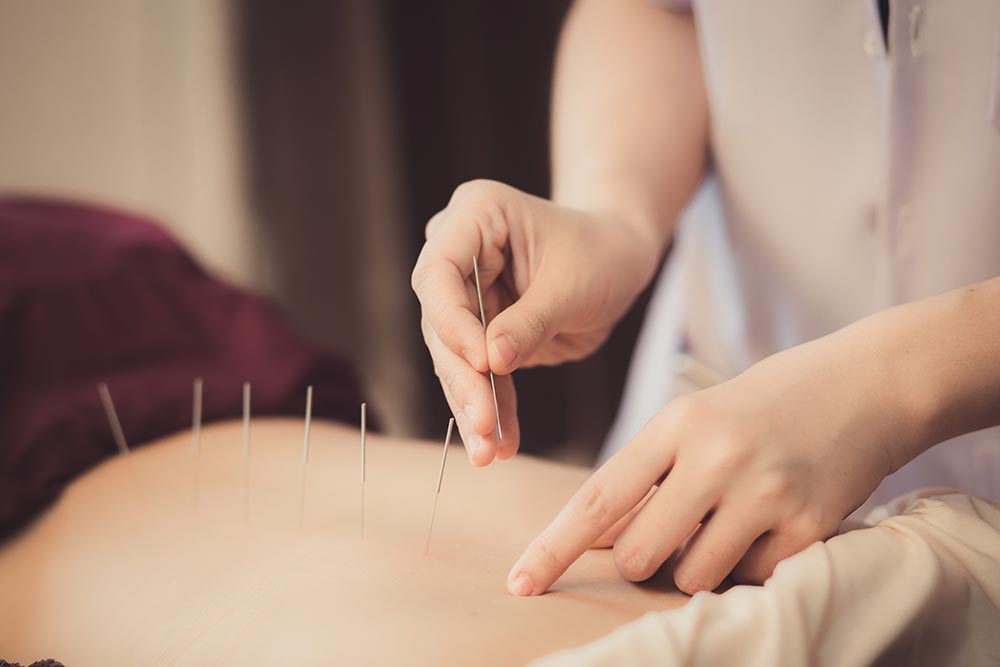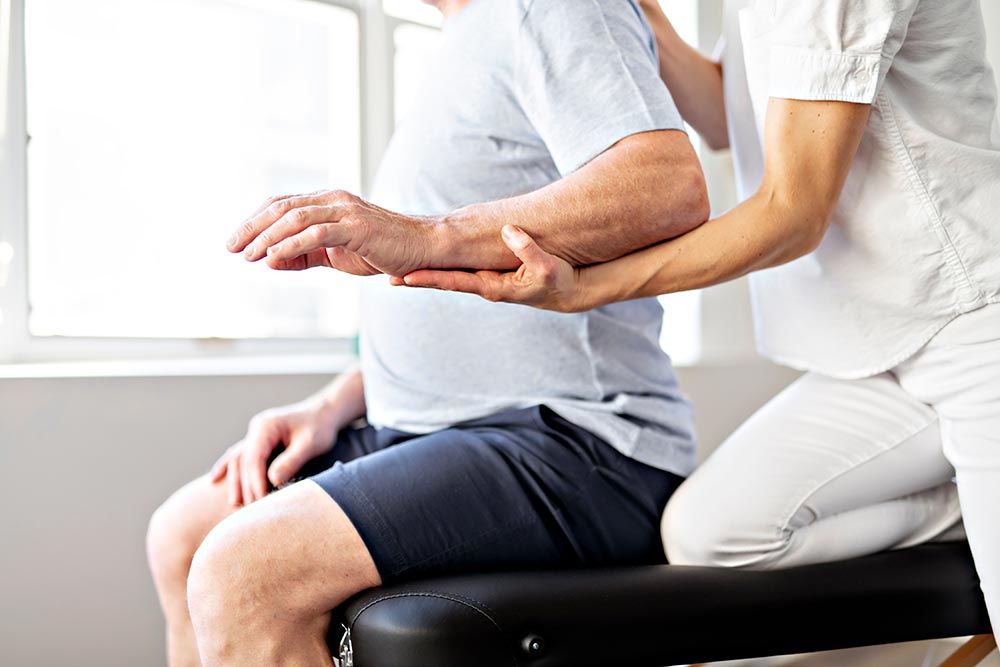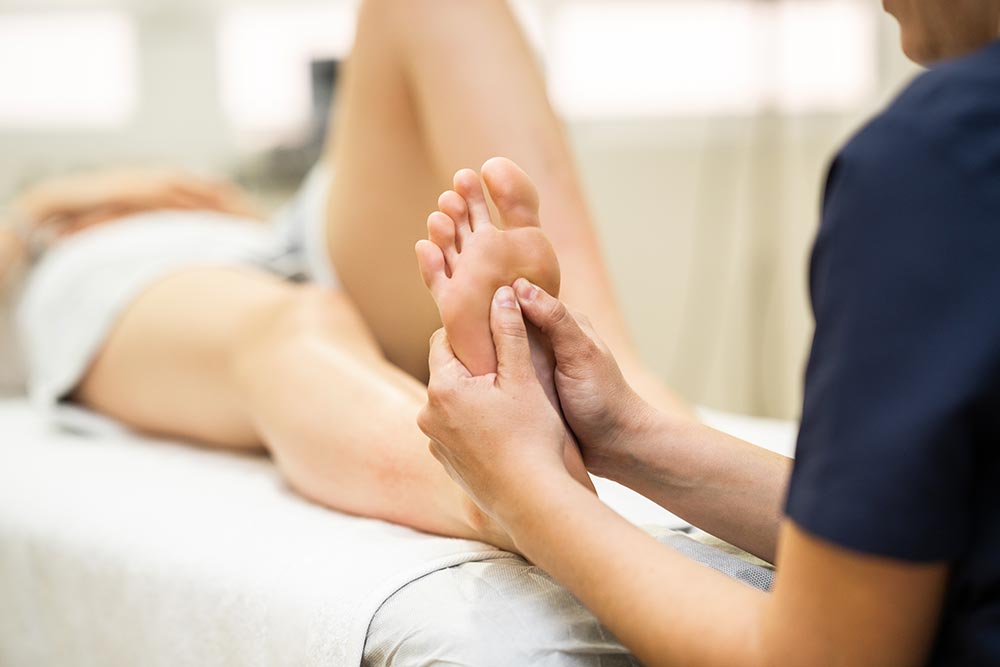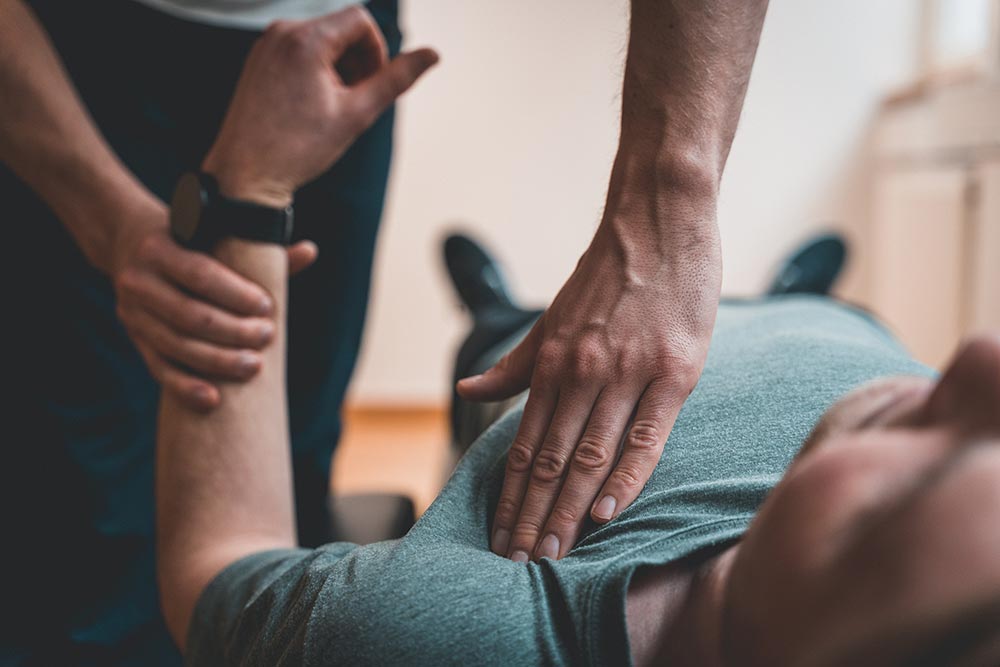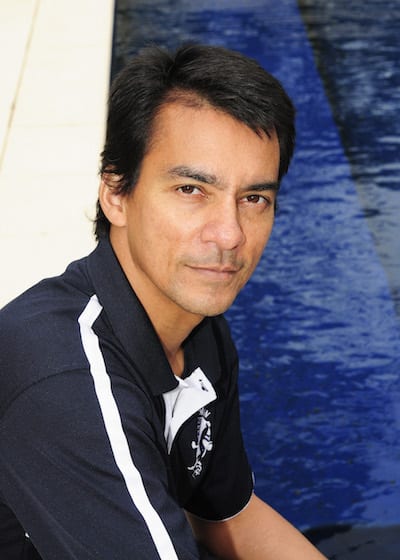
Patients of all ages are welcome at Blue Sky Physiotherapy.
Everyone in your family is welcome at Blue Sky Physiotherapy. We accept and care for all ages, from children through to more mature members of our community. We aim to understand your issues in their entirety, working toward a holistic approach to solving them.
Aubrey Francis
Founder & Principal Physiotherapist
Physiotherapy injuries/ailments we treat
Just like injuries can vary greatly across your body, the treatments for each injury can also vary greatly. The knowledge we have gathered through both our physiotherapy education and from treating patients over our careers allows us to provide a more wholistic approach to assessments and solutions.
Neck Pain
Some common causes of neck pain include muscle pain, osteoarthritis, joint stiffness, disc injuries, postural syndromes, cervicogenic headache and wry neck.
Hip Pain
Hip bursitis, gluteal tendinopathy, groin pain, osteitis pubis, tendon tears of the hip, hip arthritis. Hip pain is often referred pain from the lower back. Rehabilitation following total hip replacement.
Jaw Pain/Temporomandibular Joint Pain
Often difficult to identify, most of our presentations of temporomandibular joint pain are referred by local dentists. There can be complex interactions with jaw pain, headache and neck pain. We have specific training that enables us to differentiate issues originating from these different areas, and treat jaw pain / temporomandibular joint pain.
Back Pain
Low back pain and thoracic back pain are a common presentation at Blue Sky Physiotherapy. It can be disabling and cause significant disruption to people’s lives. Referred pain, leg pain and ‘sciatica’ can all be associated with low back pain. Extensive training and clinical experience means our therapists are well placed to help you with back pain.
Elbow Pain
Lateral epicondylalgia, commonly known as tennis elbow & medial epicondylalgia, commonly known as golfer’s elbow. Tendinopathy and tendon tears. Overuse injuries. Muscle pain in the forearm.
Wrist and Hand Pain
The wrist and hand are very complex structures, involving many bones, joints, tendons and muscles. We can help you with post-fracture rehabilitation, wrist pain, De Quervain's tenosynovitis, injuries requiring diagnosis, overuse injuries, osteoarthritis, stiff joints and muscle pain in the forearm.
Pre & Post-Operative Care
We have strong working relationships with surgeons in the region, routinely providing pre and post-operative care for surgeries including total knee replacements, total hip replacements, spinal surgery, ACL reconstructions, shoulder rotator cuff repairs, total shoulder replacements and more.
Shoulder Pain
Common shoulder conditions we can help you with include rotator cuff tears/injury, bursitis, frozen shoulder, shoulder impingement, shoulder instability / laxity & shoulder rehabilitation following injury or dislocation. The shoulder is a complex joint, our advanced education and training in shoulder management leaves us well placed to care for your shoulders.
Vertigo / Dizziness
BPPV (Benign Paroxysmal Positional Vertigo) is a common form of vertigo that can be successfully treated by physiotherapists. It is caused by the movement of tiny crystals in the semicircular canals of the inner ear. Symptoms can be very unpleasant and disabling to those effected. Treatment techniques our physiotherapists may use include the Dix-Hallpike Testing Manoeuvre, Epley Manoeuvre or Brandt Daroff Exercises.
Knee Pain
Knee arthritis, patellofemoral pain, patella tracking problems or patella instability, post-injury diagnosis and rehabilitation, anterior cruciate ligament (ACL) injury, medial ligament injury, patella tendinopathy, calf muscle injury, hamstring strain / tears, quadriceps contusions, Osgood-Schlatter Disease, meniscus injury. Rehabilitation following total knee replacement, arthroscopy or ACL reconstruction.
Foot and Ankle Pain
Plantar fasciitis, heel pain, Achilles tendinopathy, post-fracture rehabilitation, ankle sprain, tendon and ligament injuries of the ankle, overuse injuries, ankle instability. Injury of the syndemosis, anterior tibiofibular or deltoid ligaments.
Headache
Of the many headache types, we most commonly treat Cervicogenic Headache- headaches that originate from the neck region- with great success.
Nerve Pain / Pinched Nerve
Nerve pain is common and known to be one of the most painful conditions. Pins & needles, tinging, numbness and sharp, painful electrical sensations are all sign’s of nerve compression or trauma. The most well known true nerve pain condition is ‘sciatica‘ where people experience a pain travelling from the lower back down the thigh into the leg. We assess nerve integrity by checking your strength, reflexes and sensation. There are a range of strategies and treatments available to alleviate nerve pain.
Muscle Pain/Myofascial Pain
Muscle pain, or myalgia, is quite common and can be felt anywhere there is muscle tissue on the body. Common causes of muscle pain include tension or stress, injury (sprains) or using a muscle too much (Overuse injury). Another cause may be fibromyalgia, a condition that causes tenderness in the muscles and surrounding soft tissue as well as sleep difficulties, fatigue or headaches.
Arthritis
Arthritis is a broad term that covers more than 100 conditions affecting the joints and surrounding tissue. The most common form of arthritis is osteoarthritis (OA), which affects two million Australians and is the most common reason for potentially avoidable knee surgeries in Australia. Physiotherapists are highly experienced in providing tailored arthritis exercise programs for individual patients depending on the type and severity of their condition. We know that a lot of people come to us fearful of the pain associated with their arthritis, and we work with them to achieve their goals and improve their mobility and confidence to exercise without harm. More and more people are looking for treatment options that don’t involve surgery, and physiotherapy programs have seen excellent results in many trials both within Australia and globally. (Australian Physiotherapy Association Media Release March 2019)

